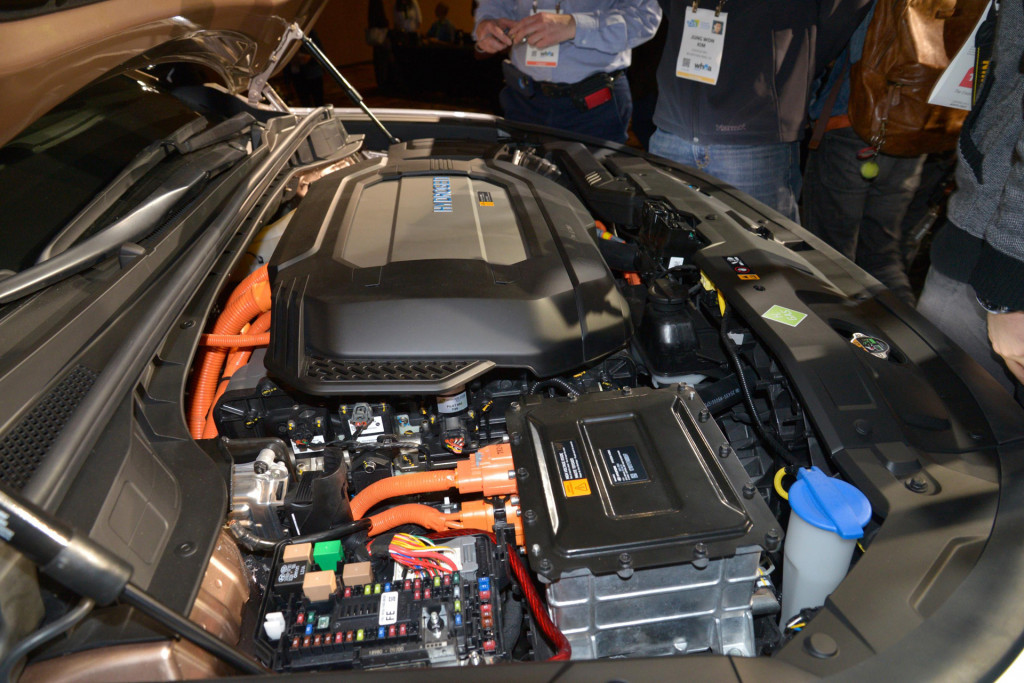After launching the Ioniq brand for battery-electric cars, Hyundai on Thursday announced a new brand dedicated to hydrogen fuel cells—HTWO.
The new brand—which takes its name from "H2," the designation for the hydrogen molecule—will initially focus on the United States, Europe, and China, according to Hyundai.
In addition, Hyundai is "stepping up efforts" to develop its next-generation fuel-cell powertrain, as well as cultivate fuel-cell applications beyond cars, such as ships and trains, the automaker said in a press release.

Hyundai Nexo
"Not only will the next-generation fuel-cell system be available for many different mobility products and services, it will deliver enhanced performance and durability at an affordable price in a lighter architecture with advanced energy density," Hyundai said in a statement.
The next-generation system might also be sold to other automakers—for the Ineos Grenadier SUV, for instance.

2021 Ineos Grenadier prototype
Hyundai has already given plenty of indications that it plans to expand the use of its system to an entire hydrogen economy.
Last year, the automaker unveiled the HDC-6 Neptune fuel-cell semi truck concept, and earlier this year it said hydrogen will eventually generate $2.5 trillion in revenue per year, with half of that revenue coming from sales of hydrogen itself, and the other half from sales of fuel-cell vehicles and energy-storage units.

Hyundai Nexo
The current Hyundai fuel-cell stack and system were introduced in 2018 and first used to power the Hyundai Nexo crossover. Missing from Hyundai's sunny predictions about hydrogen is the fact that sales volumes of the Nexo and other fuel-cell passenger cars have been quite low, largely due to insufficient fueling infrastructure.
But that hasn't discouraged Hyundai from continuing to pitch fuel cells as an alternative to batteries.
Albert Biermann, the company's R&D boss, recently suggested that applying fuel-cell tech to electric pickup trucks and SUVs might be smarter than big, double-layer batteries being used by General Motors.












